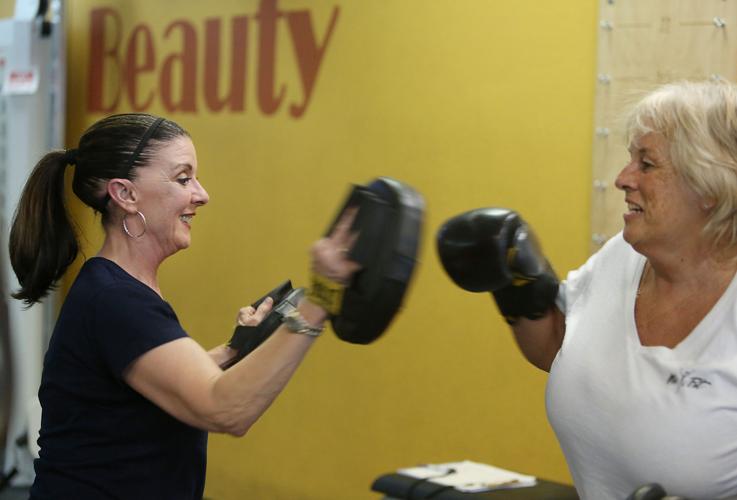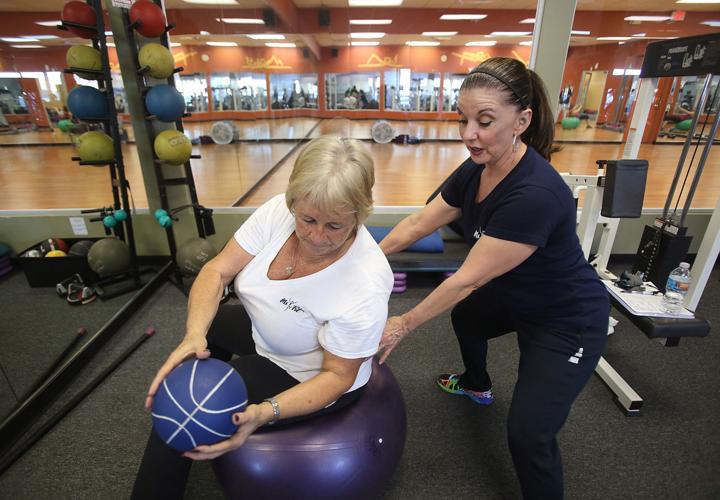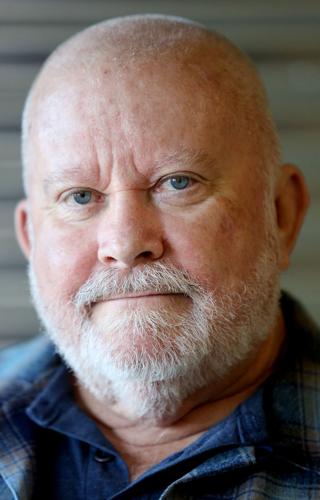A recently widowed woman came into the small east-side gym, looking to fill a void in her life. She sought a way to connect with new interests and meet new friends and has since become the heart of her social circle.
A prospective bride came in, wanting sleek arms and shoulders for her strapless wedding gown. The result was evident in her wedding photos.
A woman recovering from an injury wanted to be strong enough to lose the walker she feared she would use for the rest of her life. A year later, she hiked parts of the trails in Pagosa Springs, Colorado.
Annette Simper, 59, has celebrated triumphs like these with women ever since she became part of the women’s fitness industry in 1977. She showed up at the then-Elaine Powers Figure Salons as a college student with some new and unwanted extra pounds. A former cheerleader and dancer who loved being active and social, she would end up begging for a job two weeks later, convinced she had found her calling.
She and her husband, Bob Simper, who has 50 years in the local fitness industry, built and sold the Naturally Women Fitness Center corporation that proliferated in Tucson and Phoenix in the 1980s.
In 2001, they opened the all-women’s Ms. Fit Health Club at 7788 E. Speedway, popular with women who were looking for convenient, efficient workouts, typically through 45-minute classes or cardio circuits.
But when the recession was at its height in 2008-09, Annette Simper fielded about a dozen calls a day from members struggling to keep their memberships, all too often because of job layoffs. The club lost members.
And when the larger chains came into Tucson, Ms. Fit lost about 30 percent of its members. With a base of just more than 600 members, the numbers just didn’t work any longer.
The women’s-only club model is increasingly tough, Simper said, particularly as the larger mixed clubs have become more sensitive to women’s needs as they’ve faced market realities.
When women signed up for Ms. Fit memberships, one of the first questions they would answer is whether women-only was important to them. For devout, religious women the answer was yes. “But more and more, what we heard was that women were making choices based on location and services,” Simper said.
And, she said, the gym industry overall is just getting harder for mom-and-pop businesses like hers. Smaller clubs often have a hard time competing with the bigger, newer clubs that can offer lower introductory monthly rates and have vast amounts of capital at their disposal. The big clubs also have the administrative wherewithal to qualify for Silver Sneakers, the federal program that provides access to participating health clubs at no cost to members in many Medicare plans nationwide.
The recession only compounded the challenges.
For Simper, there’s little consolation in the way she — often quite literally — shaped women’s lives. “Right now, I’m just profoundly sad,” she said. “Although I am happy that I was able to make that kind of investment in the women in this city, I am very sad to face the fact that we will not be successful in the future.”
With the club closing in December, members are running and pedaling on cardio equipment that has “for sale” signs. The course instructors who can afford it are teaching for free. That includes Donna Wilhelm, who has a loyal Zumba following and has worked for Simper for most of the last 30 years.
“To me, what has made this place so special is the loving and supportive and family-like atmosphere,” Wilhelm said, noting women have accepted one another and supported their goals regardless of fitness level or size. “You just feel comfortable no matter your circumstances, and with that, friendships are formed.”
Just recently, members took up a collection for a member whose husband was going through serious health problems and couldn’t work. They took turns driving an older member of the gym who can’t drive. Many participated in a walk to raise money for surgery that would help improve the quality of life for Wilhelm’s 4-year-old nephew, who has a rare heart condition.
“The Simpers have dedicated their lives to fostering a women’s-only environment in health and fitness and many of us will deeply feel the loss of this place,” Wilhelm said.
Simper is now going through the process of finding gyms that will honor her clients’ prepaid memberships, and is working to schedule members who have purchased personal training, massage and nutrition assessments.
“We are determined to retire with integrity and make sure that anyone who has invested in Ms. Fit in good faith” gets their money back, Simper said.







